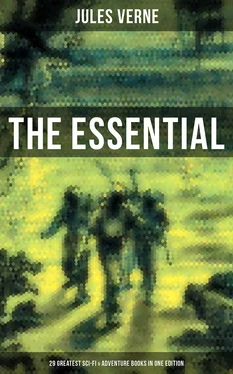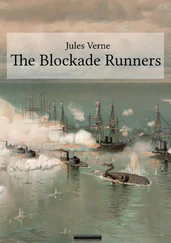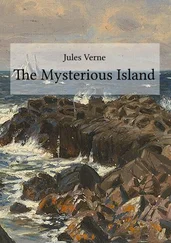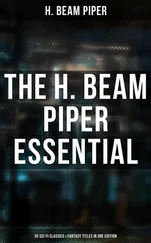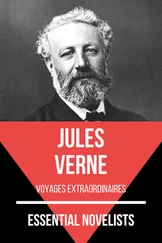However, though given up to its commercial and industrial fury, the new population of Tampa Town took care not to forget the interesting operations of the Gun Club. On the contrary, the least details of the enterprise, every blow of the pickaxe, interested them. There was an incessant flow of people to and from Tampa Town to Stony Hill—a perfect procession, or, better still, a pilgrimage.
It was already easy to foresee that the day of the experiment the concourse of spectators would be counted by millions, for they came already from all points of the earth to the narrow peninsula. Europe was emigrating to America.
But until then, it must be acknowledged, the curiosity of the numerous arrivals had only been moderately satisfied. Many counted upon seeing the casting who only saw the smoke from it. This was not much for hungry eyes, but Barbicane would allow no one to see that operation. Thereupon ensued grumbling, discontent, and murmurs; they blamed the president for what they considered dictatorial conduct. His act was stigmatised as “un-American.” There was nearly a riot round Stony Hill, but Barbicane was not to be moved. When, however, the Columbiad was quite finished, this state of closed doors could no longer be kept up; besides, it would have been in bad taste, and even imprudent, to offend public opinion. Barbicane, therefore, opened the inclosure to all comers; but, in accordance with his practical character, he determined to coin money out of the public curiosity.
It was, indeed, something to even be allowed to see this immense Columbiad, but to descend into its depths seemed to the Americans the ne plus ultra of earthly felicity. In consequence there was not one visitor who was not willing to give himself the pleasure of visiting the interior of this metallic abyss. Baskets hung from steam-cranes allowed them to satisfy their curiosity. It became a perfect mania. Women, children, and old men all made it their business to penetrate the mysteries of the colossal gun. The price for the descent was fixed at five dollars a head, and, notwithstanding this high charge, during the two months that preceded the experiment, the influx of visitors allowed the Gun Club to pocket nearly 500,000 dollars!
It need hardly be said that the first visitors to the Columbiad were the members of the Gun Club. This privilege was justly accorded to that illustrious body. The ceremony of reception took place on the 25th of September. A basket of honour took down the president, J.T. Maston, Major Elphinstone, General Morgan, Colonel Blomsberry, and other members of the Gun Club, ten in all. How hot they were at the bottom of that long metal tube! They were nearly stifled, but how delightful—how exquisite! A table had been laid for ten on the massive stone which formed the bottom of the Columbiad, and was lighted by a jet of electric light as bright as day itself. Numerous exquisite dishes, that seemed to descend from heaven, were successively placed before the guests, and the richest wines of France flowed profusely during this splendid repast, given 900 feet below the surface of the earth!
The festival was a gay, not to say a noisy one. Toasts were given and replied to. They drank to the earth and her satellite, to the Gun Club, the Union, the Moon, Diana, Phoebe, Selene, “the peaceful courier of the night.” All the hurrahs, carried up by the sonorous waves of the immense acoustic tube, reached its mouth with a noise of thunder; then the multitude round Stony Hill heartily united their shouts to those of the ten revellers hidden from sight in the depths of the gigantic Columbiad.
J.T. Maston could contain himself no longer. Whether he shouted or ate, gesticulated or talked most would be difficult to determine. Any way he would not have given up his place for an empire, “not even if the cannon—loaded, primed, and fired at that very moment—were to blow him in pieces into the planetary universe.”
CHAPTER XVII.
A TELEGRAM.
Table of Contents
The great work undertaken by the Gun Club was now virtually ended, and yet two months would still elapse before the day the projectile would start for the moon. These two months would seem as long as two years to the universal impatience. Until then the smallest details of each operation had appeared in the newspapers every day, and were eagerly devoured by the public, but now it was to be feared that this “interest dividend” would be much diminished, and every one was afraid of no longer receiving his daily share of emotions.
They were all agreeably disappointed: the most unexpected, extraordinary, incredible, and improbable incident happened in time to keep up the general excitement to its highest pitch.
On September 30th, at 3.47 p.m., a telegram, transmitted through the Atlantic Cable, arrived at Tampa Town for President Barbicane.
He tore open the envelope and read the message, and, notwithstanding his great self-control, his lips grew pale and his eyes dim as he read the telegram.
The following is the text of the message stored in the archives of the Gun Club:—
“France, Paris,
“September 30th, 4 a.m.
“Barbicane, Tampa Town, Florida, United States.
“Substitute a cylindroconical projectile for your spherical shell. Shall go inside. Shall arrive by steamer Atlanta .
“MICHEL ARDAN.”
CHAPTER XVIII.
THE PASSENGER OF THE ATLANTA.
Table of Contents
If this wonderful news, instead of coming by telegraph, had simply arrived by post and in a sealed envelope—if the French, Irish, Newfoundland, and American telegraph clerks had not necessarily been acquainted with it—Barbicane would not have hesitated for a moment. He would have been quite silent about it for prudence’ sake, and in order not to throw discredit on his work. This telegram might be a practical joke, especially as it came from a Frenchman. What probability could there be that any man should conceive the idea of such a journey? And if the man did exist was he not a madman who would have to be inclosed in a strait-waistcoat instead of in a cannonball?
But the message was known, and Michel Ardan’s proposition was already all over the States of the Union, so Barbicane had no reason for silence. He therefore called together his colleagues then in Tampa Town, and, without showing what he thought about it or saying a word about the degree of credibility the telegram deserved, he read coldly the laconic text.
“Not possible!”—“Unheard of!”—“They are laughing at us!”—“Ridiculous!”—“Absurd!” Every sort of expression for doubt, incredulity, and folly was heard for some minutes with accompaniment of appropriate gestures. J.T. Maston alone uttered the words:—
“That’s an idea!” he exclaimed.
“Yes,” answered the major, “but if people have such ideas as that they ought not to think of putting them into execution.”
“Why not?” quickly answered the secretary of the Gun Club, ready for an argument. But the subject was let drop.
In the meantime Michel Ardan’s name was already going about Tampa Town. Strangers and natives talked and joked together, not about the European—evidently a mythical personage—but about J.T. Maston, who had the folly to believe in his existence. When Barbicane proposed to send a projectile to the moon every one thought the enterprise natural and practicable—a simple affair of ballistics. But that a reasonable being should offer to go the journey inside the projectile was a farce, or, to use a familiar Americanism, it was all “humbug.”
This laughter lasted till evening throughout the Union, an unusual thing in a country where any impossible enterprise finds adepts and partisans.
Still Michel Ardan’s proposition did not fail to awaken a certain emotion in many minds. “They had not thought of such a thing.” How many things denied one day had become realities the next! Why should not this journey be accomplished one day or another? But, any way, the man who would run such a risk must be a madman, and certainly, as his project could not be taken seriously, he would have done better to be quiet about it, instead of troubling a whole population with such ridiculous trash.
Читать дальше
